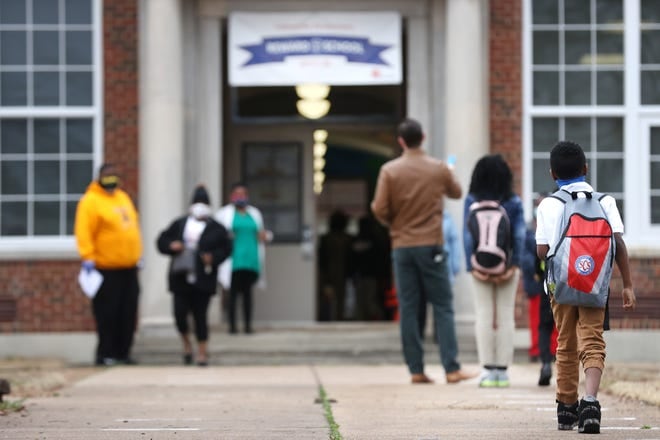Tennessee schools are about to be on the receiving end of a historic windfall of federal cash — nearly $2.5 billion, to be exact.
We’d like to know how you think school leaders should spend it.
Last week’s passage of President Joe Biden’s American Rescue Plan adds billions more to the $1.5 billion the state already has received for education from the first two stimulus plans approved during the COVID-19 pandemic.
Education Commissioner Penny Schwinn calls the total a “stunning amount of money,” with high-poverty districts getting the largest shares.
District leaders will have a lot of flexibility on how to spend the latest federal investment, but must dedicate a fifth of it to learning recovery programs like summer school, after-school tutoring, and extending the school day. The rest can go for other pandemic-related needs.
We want to hear from students, parents, and educators about the greatest needs you see as Tennessee seeks to recover from the pandemic. Please take our brief survey and let us know if we can follow up with you.






